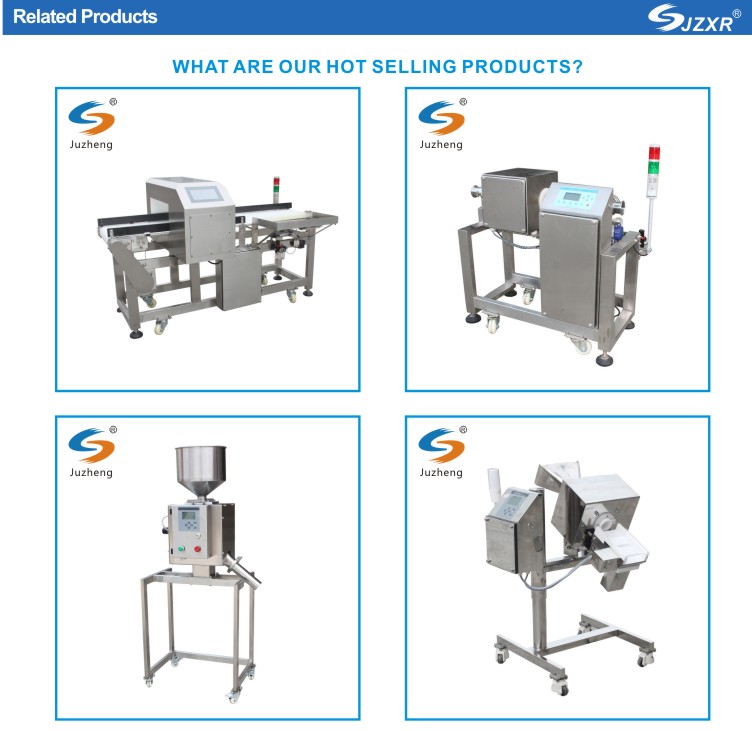The metal detector uses the principle of
electromagnetic induction to detect metal and with high detection sensitivity
for all metals including iron, non-ferrous (aluminum or copper) and stainless
steel. When ferromagnetic metals enter the detection area, it will affect the
distribution of magnetic field lines in the detection area, thereby destroying
the fixed range of magnetic field balance. Non-ferromagnetic metals entering
the detection area will produce eddy current effects, which will also change
the magnetic field distribution in the detection area.
Normally, the metal detector is composed of
3 parts, the electrical control part, the metal detector head and the automatic
rejection system, of which the detector is the core part. Three sets of coils
are distributed inside the detector, namely the central transmitting coil and
two equal receiving coils. The oscillator connected to the transmitting coil in
the middle generates a high-frequency variable magnetic field. When there is no
metal passing through or in an idle state, the two The induced voltages of the
side receiving coils cancel each other before the magnetic field is not
disturbed and reach a balanced state. Once the metal contaminations enters the
magnetic field and the magnetic field is disturbed, this balance is broken, and
the induced voltage of the two receiving coils cannot be cancelled. The
un-cancelled induced voltage is amplified and processed by the control system,
and an alarm signal is generated (metal contamination is detected ). The system
can use the alarm signal to drive an automatic rejection device so as to reject
the metal contaminations or impurities from the normal product.
According to the transportation mode of the product, the metal detectors are usually divided into conveyor belt type, free fall type and the pipeline type. Juzheng has range of metal detection systems to suit your muti-applications.

 Pусский
Pусский
 +86 13751397283
+86 13751397283

